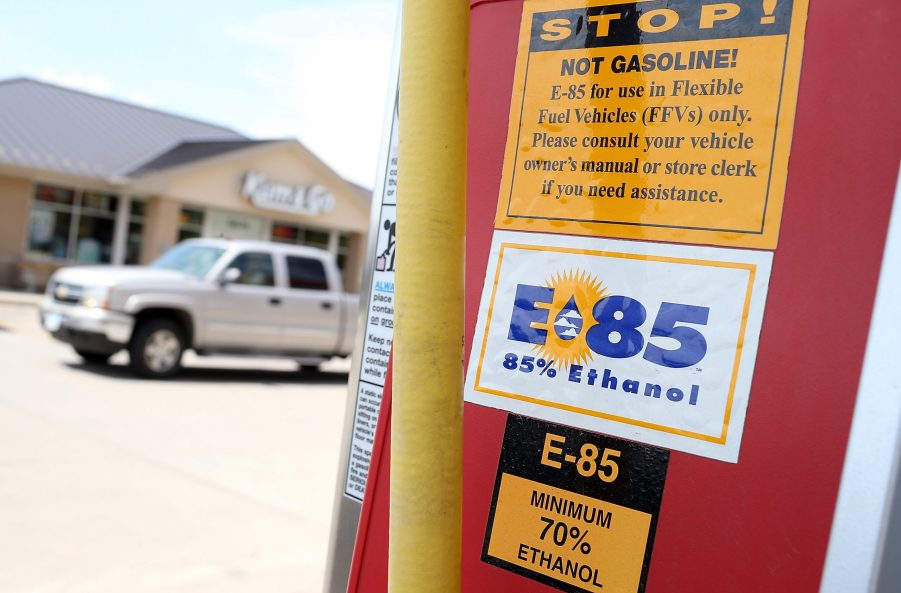
How Bad Is Ethanol Fuel for Your Boat?
If you’re thinking about getting a boat, you’ve probably heard a lot of different things. Some say go for it, while others believe you should avoid buying a boat at all costs. Others offer advice about how to maintain the boat, and it all seems contradictory, especially when it comes to whether or not you should use ethanol.
It’s an interesting question, especially if you’re new to boating. So what is the truth? Should you use fuel containing ethanol? Is it really as bad as everyone claims? West Marine has all the details.
What is ethanol, and why do you hear so much about it?

Ethanol is one of the many substances found in fuel. According to West Marine, “Ethanol is used as an “oxygenate” and is added to fuel to help reduce hydrocarbon emissions that cause air pollution. It is highly refined beverage (grain) alcohol, approximately 200-proof, that can be produced from natural products such as corn, sugar cane and wheat.”
There are three types of ethanol fuel currently available in the United States: E10, E15, and E85. E10 contains 10 percent ethanol, E15 has 15 percent ethanol, and E85 has 85 percent ethanol. E85 is only for specific vehicles, and boats aren’t on that list.
It’s rather interesting how ethanol is made. As it turns out, it’s made from the sugar or starch from corn. So you might say that your vehicles run on sugar just like many of us do.
Once the sugar is removed, it’s fermented, and turned into alcohol. The water is then removed, leaving behind very pure ethanol.
Should you use it in your boat?
The short answer? No. The long answer? It’s a little more complicated than that.
Most fuel contains ethanol now. In fact, you might be using it and have no idea that you are. That being said, there are fuel types out there that has no ethanol, so you don’t have to use it.
West Marine reports that you can use E10 in your boat engine, but not E15 which is currently unavailable in the US. If you do choose to change over, there will be some problems, however.
Your tank can build up deposits, and ethanol acts as a solvent. It will begin to break down the deposits, and this can result in water in your tank. When this happens, the ethanol and water separate from the fuel, and drop to the bottom of the tank. This is known as phase-separation.
While water might be good in some engines, it can wreak havoc on your gas tank. The water/ethanol mixture can be pulled into your fuel lines, rather than gasoline, and can clog your fuel filter. It can also lower the fuel’s octane rating, as well as clogging up the carburetor jets and fuel injectors. That’s going to cost a lot in repairs.
Interestingly enough, your boat isn’t the only vehicle that ethanol is bad for. Your car doesn’t handle ethanol well either, which tells you just how aware you should be of how much ethanol is going into your ride. But what happens if you discover there is too much ethanol in your boat?
What should you do if there is ethanol oil in your boat?
If phase separation is happening in your tank, you might need to completely drain it and clean it. This can be a bit of a pain, but it’s necessary unless you’re ready for your boat to give up the ghost.
If you’re trying to prevent phase-separation and aren’t looking forward to draining your boat’s gas tank, there are a few options. According to Florida Sportsman, you have the option of stabilizing the fuel/ethanol/water mix in your boat’s fuel tank by adding in a fuel additive.
Fuel additives prevent phase-separation, clean the tank, and prevent corrosion. This can help your boat in many ways that will lower the costs of repairs.
If you’re wondering if just skipping ethanol fuel in favor of something that doesn’t contain ethanol is a better option, it might save you some heart ache, but it’s not a full proof plan. Gas can, and will go bad, especially if your boat is sitting for long periods of time. So whatever fuel type you choose to use, do your research so you know how to care for your boat.


